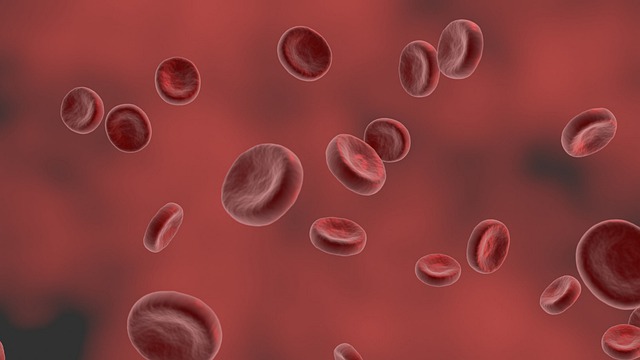High cholesterol levels pose health risks for men susceptible to heart disease. The Male Hormone Blood Test UK offers a straightforward way to assess total, LDL (bad), and HDL (good) cholesterol levels, empowering individuals to make informed decisions about their health. By detecting hormonal imbalances early, men can proactively manage cholesterol through lifestyle changes and reduce cardiovascular issues. Interpret results according to UK guidelines: total cholesterol below 5 mmol/L is optimal, and HDL should exceed 1 mmol/L. Regular testing for men over 40 or with family history of high cholesterol is recommended.
Discover how simple blood tests can help you manage your cholesterol levels. This comprehensive guide, tailored for men, delves into the basics of cholesterol, highlighting its significance in overall health. We explore how a Male Hormone Blood Test UK can provide valuable insights, enabling proactive management. Learn about interpreting test results and adopt strategies to maintain healthy cholesterol levels, ensuring a robust and vibrant future.
- Understanding Cholesterol: The Basics Every Man Should Know
- How a Male Hormone Blood Test UK Can Help Monitor Cholesterol Levels
- Interpreting Results and Maintaining Healthy Cholesterol After the Test
Understanding Cholesterol: The Basics Every Man Should Know
Cholesterol is a waxy, fat-like substance found in your blood that plays a crucial role in maintaining good health. While it’s essential for various bodily functions, such as producing hormones and building cell membranes, high cholesterol levels can lead to serious health issues. In men, managing cholesterol is especially important due to the risk of heart disease, which remains one of the leading causes of death in the UK.
A Male Hormone Blood Test UK can provide valuable insights into your cholesterol profile. This simple procedure involves drawing a small sample of blood to check for total cholesterol, LDL (low-density lipoprotein) or ‘bad’ cholesterol, and HDL (high-density lipoprotein) or ‘good’ cholesterol levels. Understanding these numbers is key to making informed decisions about your health, as they can help identify potential risks and guide lifestyle changes or medical interventions to keep cholesterol in check.
How a Male Hormone Blood Test UK Can Help Monitor Cholesterol Levels
A Male Hormone Blood Test UK is a valuable tool for monitoring cholesterol levels, offering insights into an individual’s cardiovascular health. This test measures various hormones, including testosterone, which plays a significant role in maintaining optimal cholesterol balance. High cholesterol is often associated with elevated androgen levels, and this test can help identify such imbalances. By assessing these hormone levels, individuals and healthcare professionals can take proactive steps to manage cholesterol.
For example, if the Male Hormone Blood Test UK reveals elevated testosterone, it may indicate an increased risk of high cholesterol. This knowledge enables men to make informed decisions about their diet, lifestyle, and potential medical interventions. Regular monitoring through such tests is crucial for early detection and prevention of cardiovascular issues related to cholesterol imbalances.
Interpreting Results and Maintaining Healthy Cholesterol After the Test
After your cholesterol levels have been measured through a simple blood test, it’s crucial to understand and interpret the results accurately. Typically, cholesterol is measured in millimoles per litre (mmol/L). According to UK health guidelines, total cholesterol should be below 5 mmol/L for optimal health. Levels between 5-7 mmol/L are considered borderline high, while anything above 7 mmol/L is generally seen as high. High-density lipoprotein (HDL), often referred to as ‘good’ cholesterol, should ideally exceed 1 mmol/L, as it helps remove low-density lipoprotein (LDL) or ‘bad’ cholesterol from the bloodstream.
Maintaining healthy cholesterol levels involves lifestyle changes and, in some cases, medication. For men, especially those over 40 or with a family history of high cholesterol, regular Male Hormone Blood Tests UK can be beneficial. Diet plays a significant role; reducing saturated fats and trans fats, increasing fibre intake, and incorporating more fruits, vegetables, whole grains, and lean proteins can help lower LDL cholesterol. Regular exercise is also crucial, as it boosts HDL levels and aids in weight management. In addition, managing stress, maintaining a healthy weight, and avoiding smoking are essential steps to keep your cholesterol in check and reduce the risk of heart disease and stroke.
A simple Male Hormone Blood Test UK can be a powerful tool for monitoring cholesterol levels. By understanding the basics of cholesterol and interpreting test results, men can take proactive steps to maintain healthy cholesterol after the test. Regular checks are key to managing this crucial aspect of overall health.
